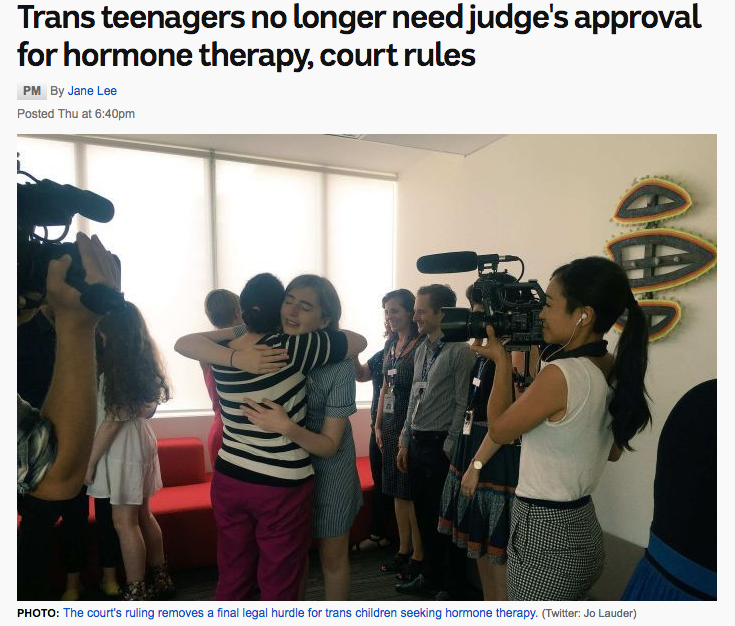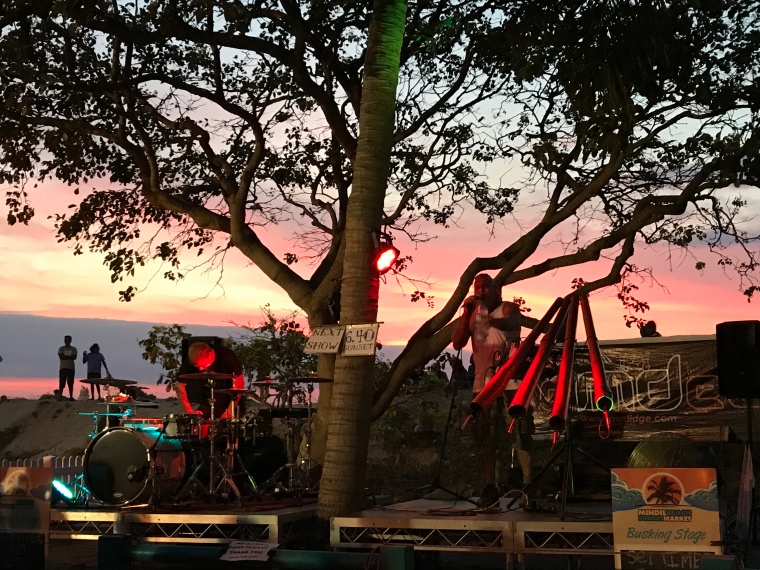The clinic I work at,
Northside Health NT, was founded by local GP Dr Dani Stewart (a finalist for 2017 Darwin GP of the year incidentally), who realized there were no services for LGBT patients in Darwin, and especially no dedicated clinicians working with the transgender population. So Dani made a few calls and put together a team of doctors who were willing to fly up regularly to see patients. It was through the hard work of Dani and her partner Sam that this specialist clinic came about.
I was privileged to be involved with the clinic from early on, and immediately realized that it filled a vacuum in services for trans people in the Top End. It started as a single day, and soon grew to two completely booked out days once a month. It’s clear there’s a great need being met here.
Working at this Darwin clinic brings me face to face with the challenges for trans people living in the Top End – it’s bad enough in Darwin where the monthly clinic is all they have, but people living remotely have no services in their towns, and travel long distances to access treatment. I have seen patients who have driven from the far corners of the country. One young trans woman came in from Kununurra (that’s a 7 hour drive folks – her lovely grandmother did the driving!) and others regularly drive 4 hours from Katherine.
There is an abundance of evidence that the lives of transgender people are overwhelmingly improved by having access to hormone therapy and surgical options, with supportive psychological services as they may be required along the way.
Recent
guidelines on the management of trans and gender diverse children and adolescents have been published by the Royal Children’s Hospital Melbourne, thanks largely to the hard work and dedication of Associate Professor Michelle Telfer. Statistics provided by Dr Telfer about the RCH’s cohort of patients suggests that the rate of desistance of young trans people by the time they reach late adolescence (ie the percentage whose dysphoria simply goes away and they no longer identify as trans) is only 4%, which is much less than the figure of 85% quoted in the literature. It should be noted that gender affirming surgery (also known as stage 3 treatment) is very rarely performed in anyone under the age of 18, and the recent court decision does not cover this area.
There is still a long way to go to establish reliable funding to ensure the long-term viability of the Darwin clinic. Ultimately it would be great to have a stand-alone or fully supported clinic that ran every week. We like to think big!
And as for the Family Court decision, it’s wonderful to finally be free of the restriction of having to go to court to begin stage 2 treatment, but there is so much more work to be done to improve access to treatment. I’m so very proud to be part of these efforts, along with my wonderful colleagues Dr Ruth McNair, Dr Jeff Wilcox, Dr Stuart Aitken, Dr Pauline Cundill, and of course Dr Dani!
 Dr Fiona Bisshop
Dr Fiona Bisshop


Reblogged this on Edie115 and commented:
Latest blog from the doc. This clinic saves lives, legit. Amazing peeps working there, also excellent news from the family court for transgender teens. I totes had a little sob when that happened, it is going to make a massive difference to a lot of peoples lives. #supporttransyouth #standupspeakout #transhealth #transisbeautiful
LikeLike